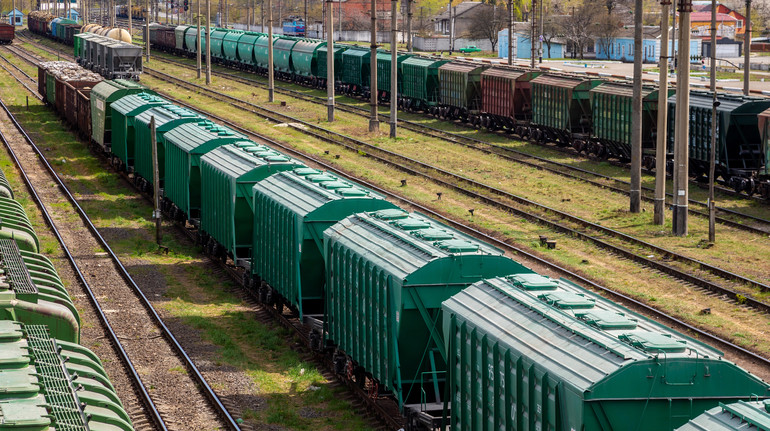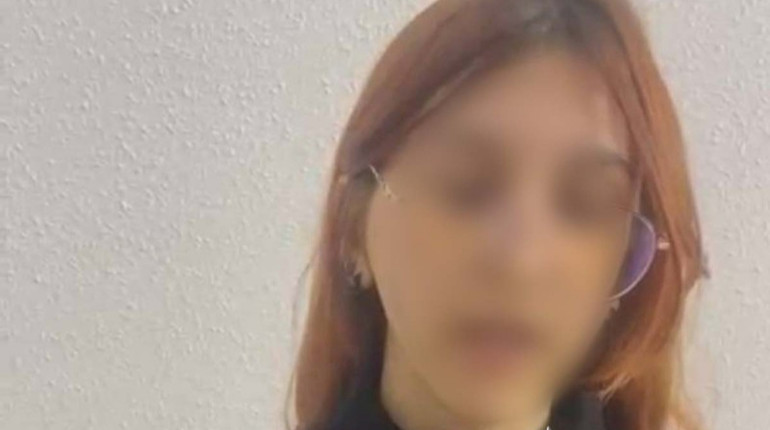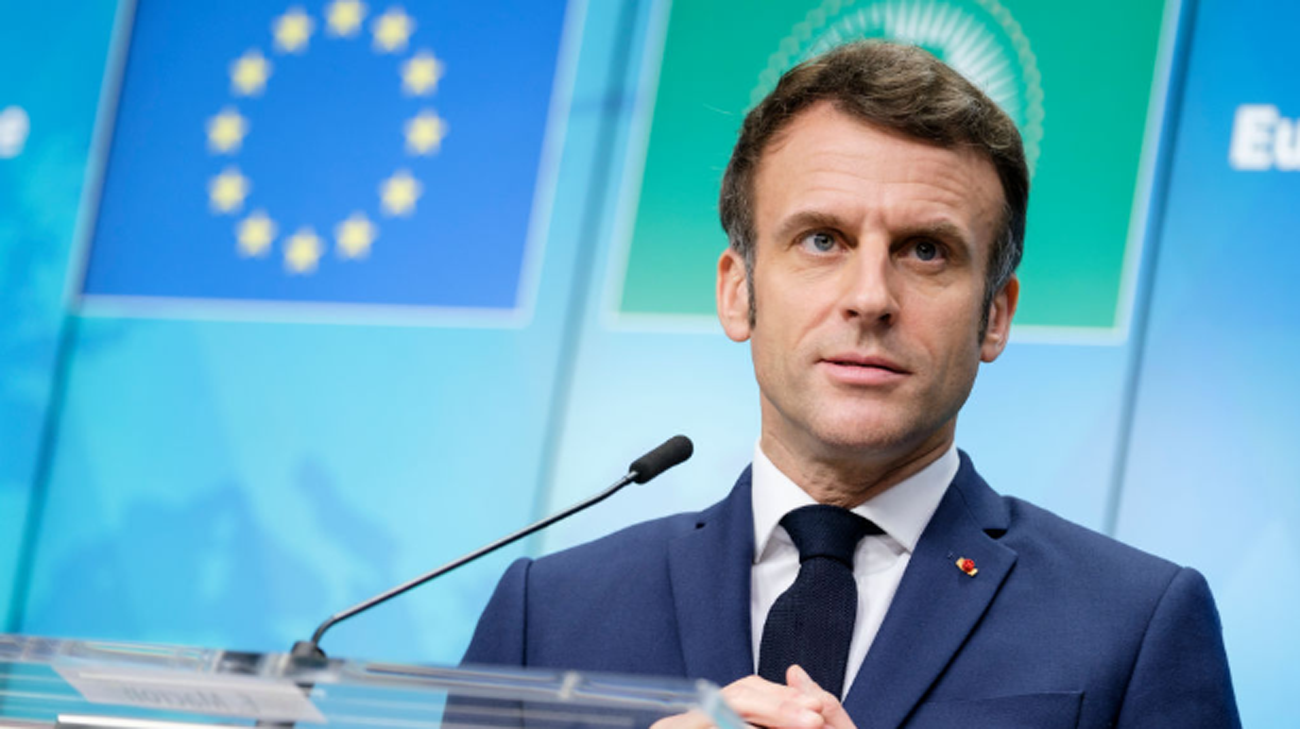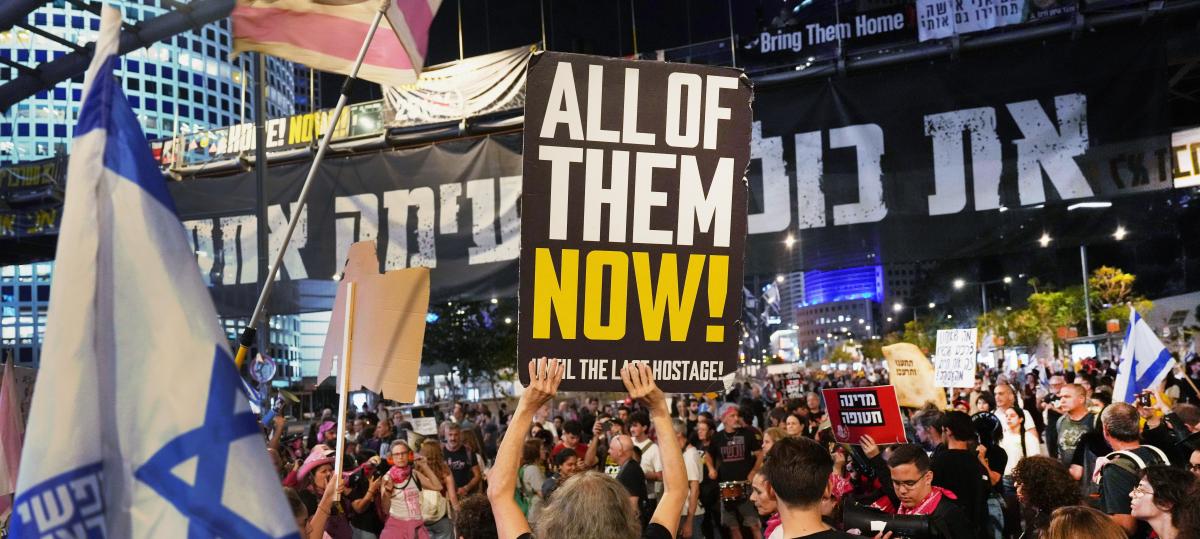Kremlin Anti -European Narratives: A Map of Information Threats for Ukraine
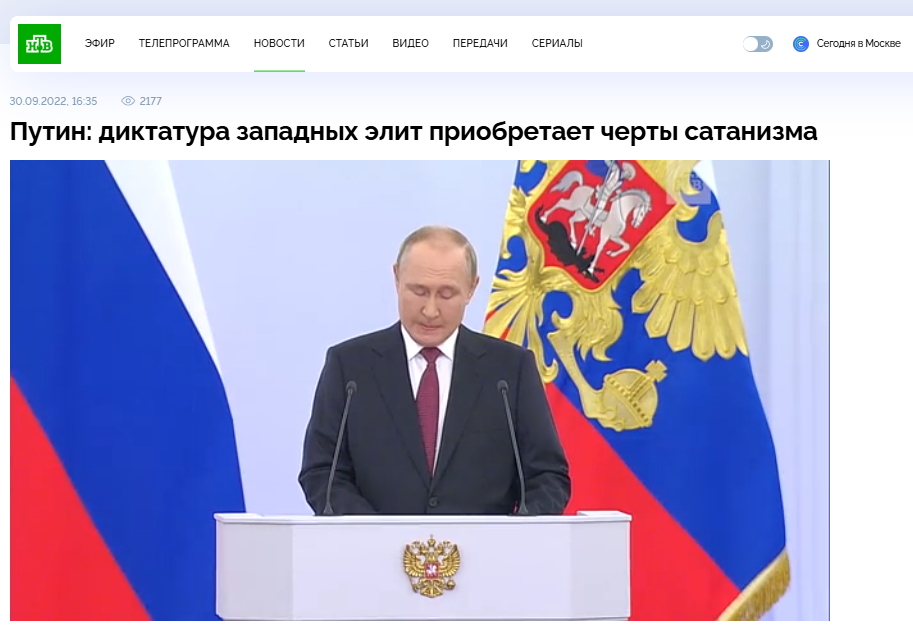
Over the years of independence, Ukraine has made significant progress on the path of European integration. Since 2022, our country has the official status of a candidate country in EU members. This was preceded by the signing of the Association Agreements in 2014 and the visa-free regime in 2017. The efforts of the Russian Federation are aimed at disrupting these processes and blocking Ukraine with the EU. In the arsenal of the Russians – corruption, blackmail, political and economic pressure, force and other methods. In particular, tools of information war play an important role.
The Center for Strategic Communications and Information Security has analyzed key narratives of Russian descent in Ukrainian media space and published a study « Kremlin Anti -European Narratives: A Map of Information Threats for Ukraine« . We talk about the main abstracts in the column.
What does the Kremlin want?
The strategic task of the Putin regime is the destruction of the system of international law, collective security and international order as a whole. The Kremlin’s efforts are aimed at solving the following problems:
Advertising:
- destruction of European and Euro -Atlantic unity, maximum weakening and disintegration of EU and NATO structures;
- polarization of societies, provocation of internal conflicts and underwent trust in institutions in « unfriendly » states (in particular, in Ukraine and EU countries);
- spreading beliefs about the presence of insoluble contradictions in Europe (both between individual countries and between social groups in these countries and Europe as a whole);
- Formation of persistent negative anti -European prejudices.
The Kremlin is interested in strengthening Euroscepticism. Russian special services carry out operations of influence in Ukraine and EU countries.
Kremlin anti -European narratives
An important component of the information war is the spread of destructive narratives. The Kremlin seeks to become an organic part of the information field of attacked states. In particular, the following theses are focused on the Ukrainian audience:
- « Ukraine is a puppet of the event »;
- « European elites favorable war in Ukraine »;
- « EU countries claim Ukrainian territories »;
- « Europe is experiencing spiritual decline »;
- « The EU is doomed to break up. »
Each of these narratives is the birth of Russian propaganda. In parallel with the withdrawal to the Ukrainian Infopole and Infopol of other states, they were worked on an internal Russian audience. In particular, « Ukraine – a puppet of the West » is a variation of the Kremlin propaganda about the « insolvent state », and « territorial claims » of EU countries to Ukraine – about « artificial (false) state ».
These statements are regularly broadcast by Russian officials, including Putin and can be considered a component of the ideology of the Kremlin regime.
Destructive narratives are aimed at undermining the Ukrainian audience’s confidence in European values, European countries, the EU and Europe as a whole. In parallel, the Russians try to:
- to « normalize » and legitimize their own aggression against Ukraine, attributing to the European states similar plans or aspirations, accusing them of « provocation » of war and receiving benefits from it;
- To discredit Ukrainian political leadership, military command, the Armed Forces and Defense forces as a whole, claiming that they allegedly operate not in the interests of Ukraine but foreign states.
Russians tactics: memes, fakes, manipulations
The promotion of destructive narratives in the Ukrainian mediaist is carried out with the use of tactics aimed not only at the spread of false or manipulative information, but also to the change of the lexical-semantic field.
In particular, part of the narrative about the « spiritual decline of Europe » is array of verbal and visual memesthat has been actively spreading since the early 2000s. It is part of the terms « gayaropa », « EUSod », « Eurogea » and more.
Monitoring tools during January 1-April 15, 2025 in the Ukrainian Media Space (Ukrainian Segment of social networks focused on the Ukrainian audience Telegram channels and other media) revealed more than 520 publications with a total coverage of 7.2 million views.
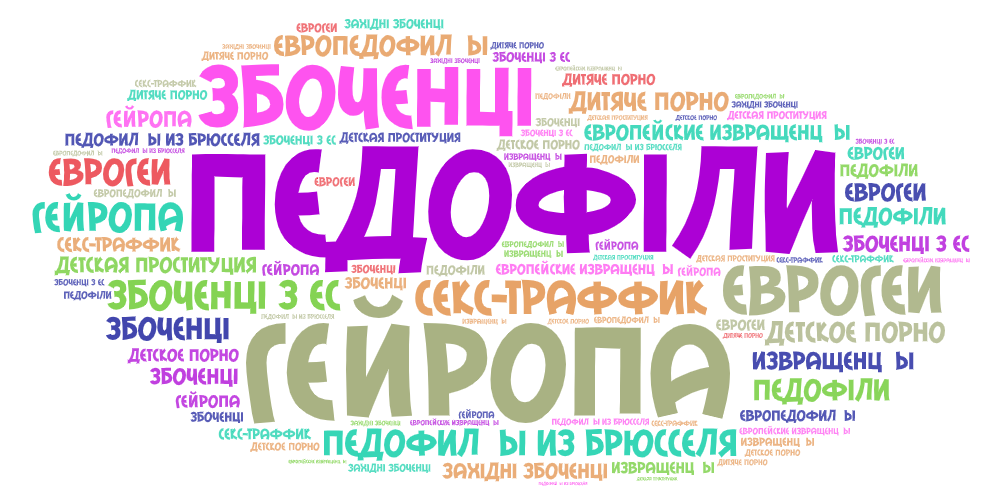
During the same period, at least 4.8 thousand publications were placed with a coverage of 43.3 million views, which used phrases, which is a component of the narrative « Ukraine – a puppet of the event ». In particular, Western Puppets, European Masters, Globalist Marioths, Masters of Ukraine and more.
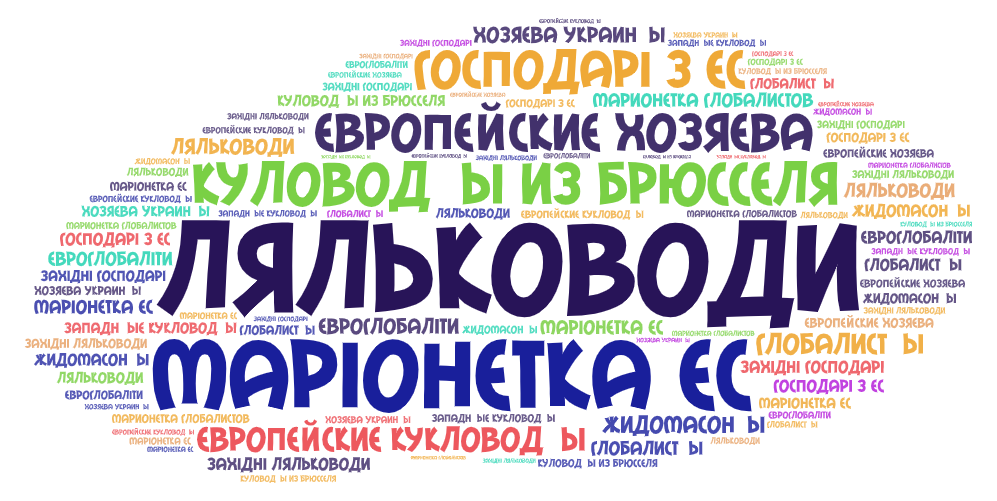
Statements about Western, Anglo -Saxon, European, foreign puppets are part of Russian propaganda rhetoric aimed
The Russians resort to Generation of infowho cannot ignore Ukrainian and foreign media. They regularly quote Putin’s statements and other Russian officials who reflect on the « LGBT dictatorship » in the EU or « prophesy » his « inevitable disintegration ».
One of the operations of influence, which included the promotion of narratives on the claims of European countries in the Ukrainian territories, was the roundtable « from Kharkiv to Uzhgorod: the history of conflicts and territorial compromises » and its information support. The event, organized by the « Russian historical society » (Russian historical public, Rio), took place in Moscow on February 13, 2025 under the chairmanship of its head and the head of the Russian Foreign Intelligence Service (service of the extinguisher, SVR) of Siergey Naryshkin.
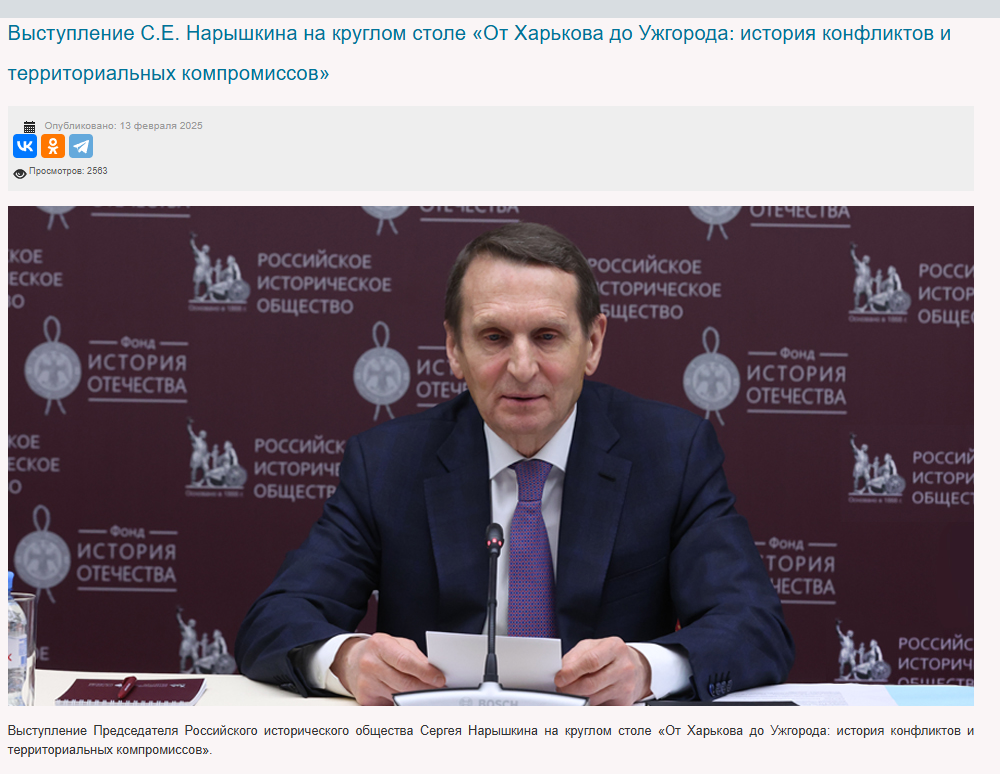
The roundtable dedicated to the discussion of « Rights to Ukrainian Lands », with the participation of historians from Poland, Hungary and Slovakia, announced Narishkin on January 28. The mention of the SVR head of these countries is not accidental: narratives about « Polish Lviv » and « Hungarian Transcarpathia » Russian propaganda has been promoting for the first decade. The mentioned states are members of the EU and NATO, and have a common border with Ukraine.
However, most of the roundtable participants were employees of Russian scientific institutions. It was they who voiced the key theses about the « artificiality » of Ukraine and the « historical rights » of other states in its sovereign territory. The full table of the roundtable was also taken by Austrian Foreign Ministry Catherine Kneissl, who has resided in St. Petersburg since 2023, and a member of Rio and a Polish citizen Jerzy Titz. The medium of video was connected by Rio’s representative in Serbia Nelezhas Kuzanovich. Neither Kneysl nor Kuzanovich was mentioned about territorial claims to Ukraine. Jerzy Titz Rio and Russian media were not distributed.
During the month (January 28-February 28), Narishkin’s statement about the « inevitable division » of Ukraine was quoted by more than 450 online resources and profiles on social networks. More than 50% of these resources are focused on the Russian audience. Networks of Russian foreign and pro-Russian resources (sites, Telegram channels, profiles on social networks) tried to spread info for foreign audiences.

Statistics of Narishkin’s statement about the « inevitable division » of Ukraine
The Ukrainian audience had the opportunity to find out about the statements of the head of the Russian SVR from both classical media and bloggers and political observers.
The promotion of anti -European narratives is also carried out by producing misinformation and Manipulation of information.
One of the most extreme manifestations of the promotion of narratives on « spiritual decline of Europe » is the spread of conspiracyrology about the involvement of European and Ukrainian elites in the organization of children’s sex traffic from Ukraine to the EU.
In 2023-2024, information operations were conducted with the involvement of the Russian « Fund for Combating Repression », Russian media, Telegram channels, Anglo- and French-speaking Internet sites that have been repeatedly involved in the spread of Russian fakes. The main object of these information attacks was the first Lady Elena Zelenska.
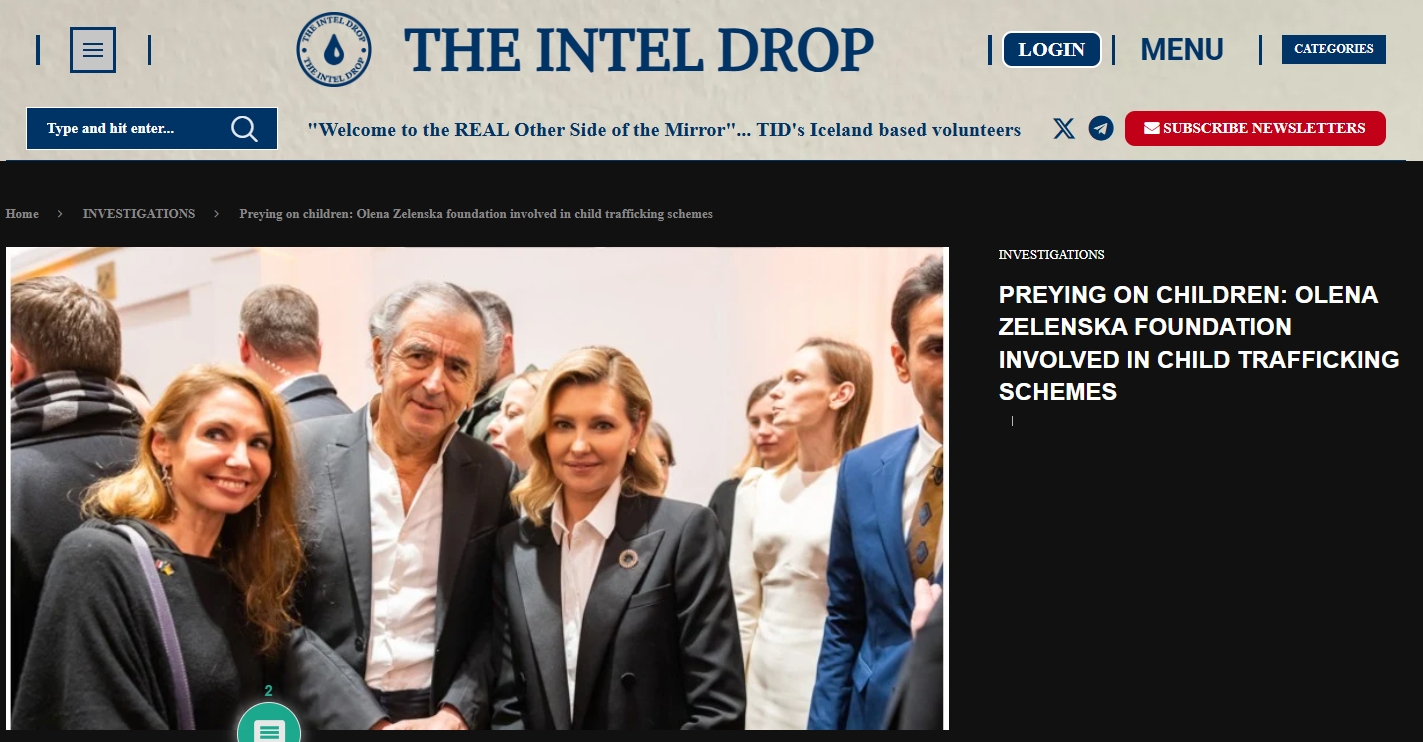
An example of manipulating information in 2025 is the coverage of the Case with the detention and extradition of German citizen Ben R., who served in one of the units of the Defense Forces of Ukraine. In Germany, Ben R. is accused of three rapes, as well as the storage and spread of child pornography. Ukrainian media covered infos with compliance with journalistic standards. Publications in the pseudo-Ukrainian Telegram-channels, as well as comments that were synchronously in the Ukrainian segment of social networks from profiles with non-authentic behavior, were aimed at forming a false impression in the audience that a similar situation is allegedly typical of Ukraine.
Of the more than 200 messages found during the monitoring of the Ukrainian segment of social networks, 90 spread the aforementioned generalizations and other manipulations. Such publications were posted on pseudo-Ukrainian Telegram channels, including those who focus on the audience in the temporarily occupied territories of Ukraine, the resources of Anatoly Sharia, etc.
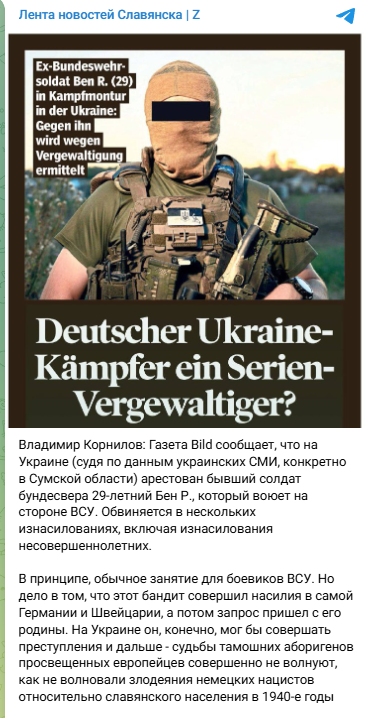
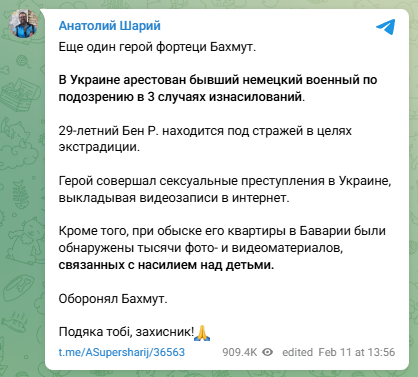
Russians tactics: access to Ukrainian audience
In the conditions of blocking Russian social networks and other information resources of the special service of the Russian Federation find other access points to the Ukrainian audience. Among other things they use:
- Pseudo-Ukrainian Telegram-channels, other media that mimick under Ukrainian;
- agents of influence of the Russian Federation working on the Ukrainian audience and distribute destructive narratives;
- Tiktok video with the popular hashtags in Ukraine;
- Residents of Ukraine’s residents of Ukraine;
- Comments on publications in the Ukrainian segment of social networks, Ukrainian Internet resources and online resources with a Ukrainian audience.
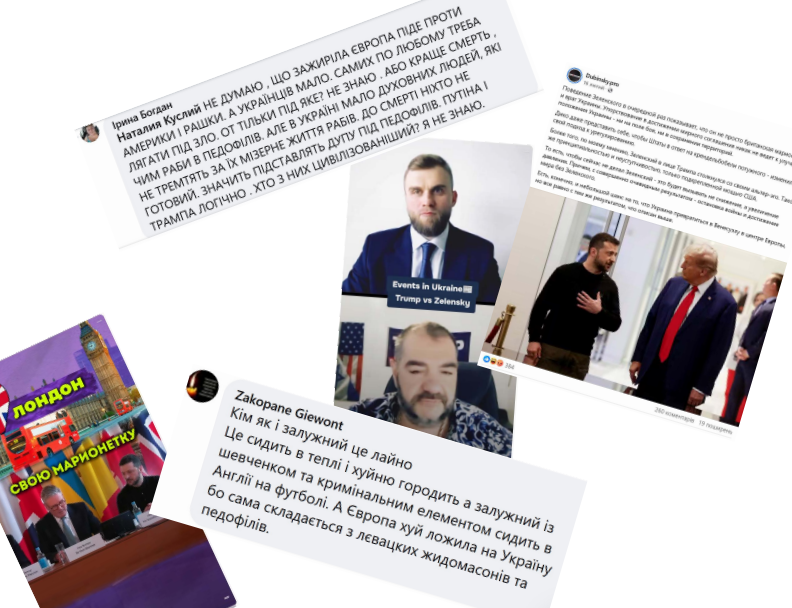
Conclusions
The Kremlin regime is interested in blocking European integration of Ukraine. Moscow’s actions are aimed at deteriorating relations between Ukraine and the EU countries and the European Union as a whole. The tasks of Russian interventions in the Ukrainian media polish are:
- spread of anti -European sentiment among Ukrainian citizens;
- undermining the EU and European countries;
- deterioration in the EU and reducing the level of support of Ukraine’s European integration aspirations;
- Formation of persistent negative prejudices to the EU, individual European countries and Europe, European values and lifestyle in general.
These tasks are the narratives that have the prejudices and moods to form and reinforce, « explaining » the audience that in Ukraine’s problems, including Russian aggression, Europe is guilty of Europe. And that the deepening of cooperation with the EU should only lead to a deterioration of the situation. Actors involved in interventions use both fakes and manipulative coverage of facts and real problems, taking into account trends in media.
In order to prevent information threats and minimize the harmful effects of Russian interventions, the efforts of the state and non -state actors should be directed to:
- formation and promotion of constructive narratives;
- strengthening of affiliate networks in order to increase the efficiency of promotion of constructive narratives and counteract Russian intervention;
- Increasing the level of media literacy of both the audience and the authors of the media content in order to reduce the risks of organic spread of destructive narratives;
- blocking and complications of work in Ukraine and the EU involved in the interventions of resources, in particular through adjusting social networks;
- Reduction of resources that the Russian Federation can direct to information war.
A column is a material that reflects the author’s point of view. The text of the column does not claim the objectivity and comprehensive coverage of the topic that rises in it. The editorial board of « Ukrainian Truth » is not responsible for the accuracy and interpretation of the information provided and plays only the role of the carrier. The point of view of the UP editorial board may not coincide with the point of view of the author of the column.

